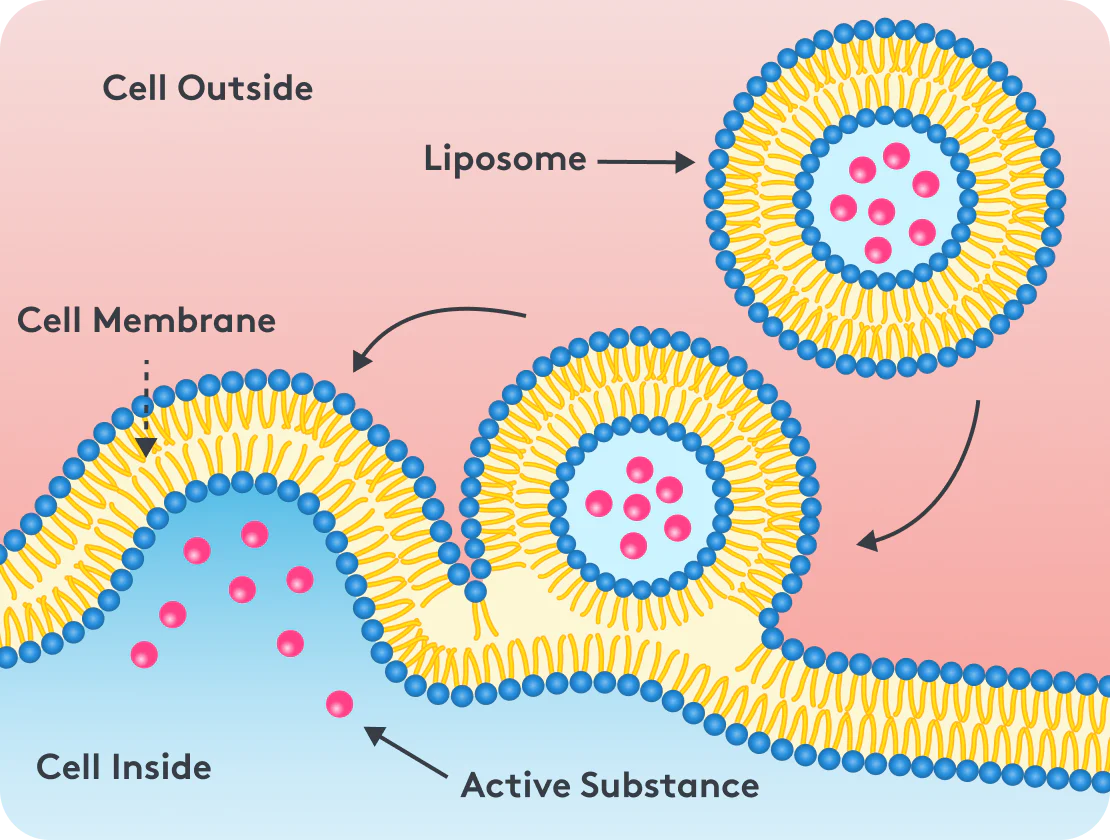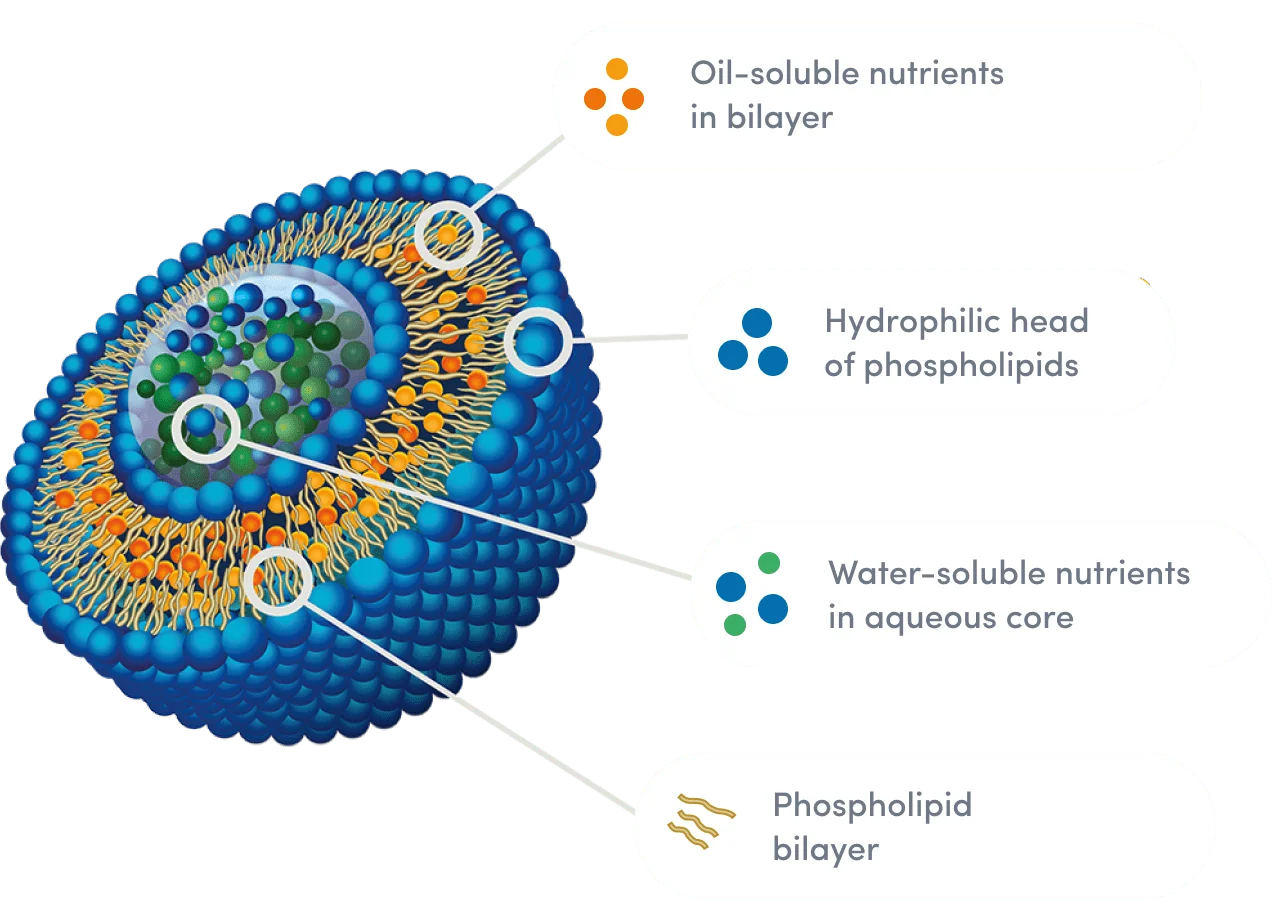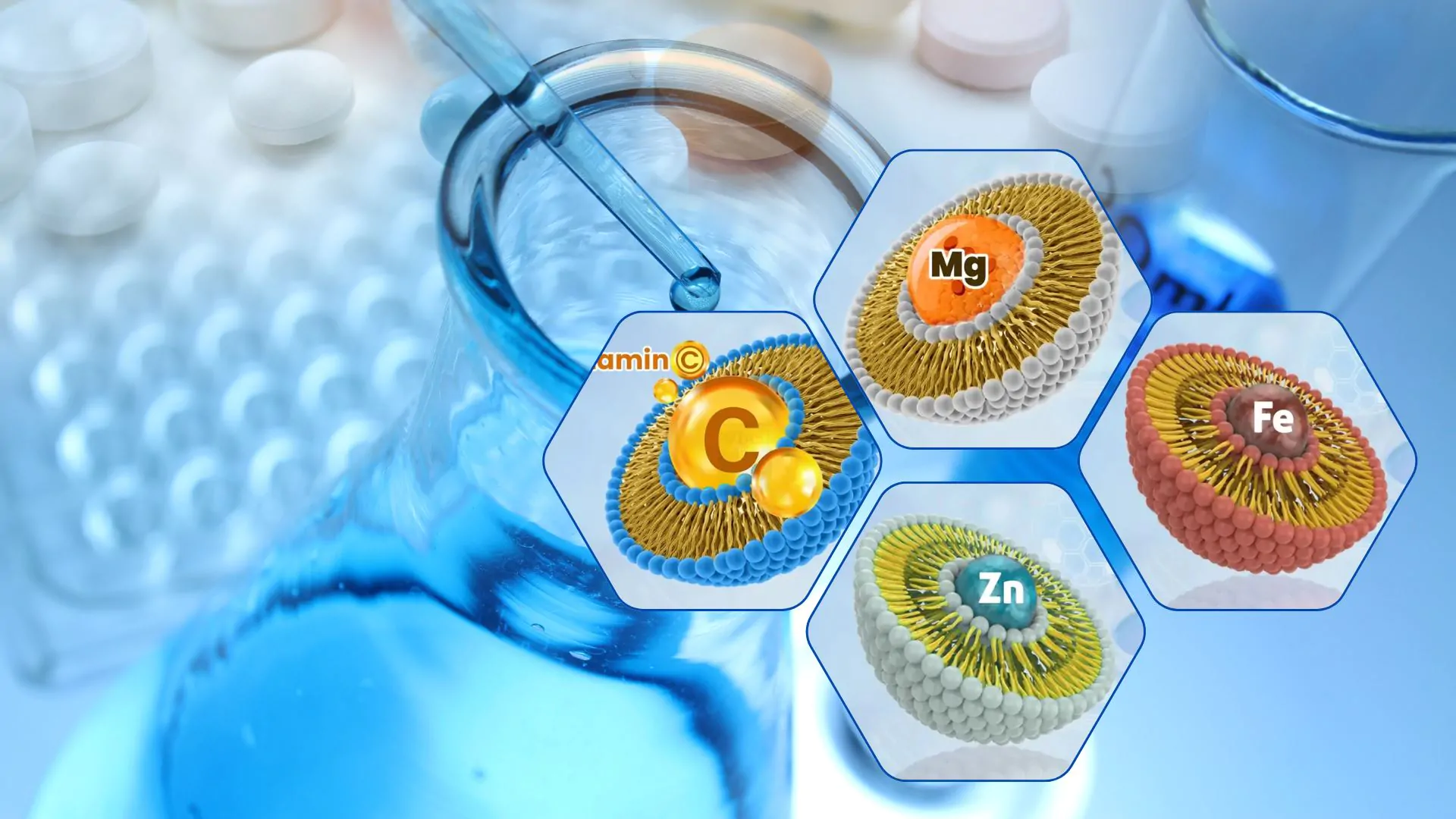Liquid vs. Powder vs. Liposomal Supplements — Which is Best?
What Are Liquid Supplements?
Liquid supplements deliver nutrients dissolved or suspended in a liquid base such as water, glycerin, or oil. Examples include herbal tinctures, multivitamin tonics, and functional ready-to-drink beverages.- Benefits:
- Fast absorption — no need for breakdown before entering the bloodstream
- Easy to customize dosing for different age groups
- High flavor potential for consumer enjoyment
- Drawbacks:
- Shorter shelf life without preservatives
- May require refrigeration
- Heavier and bulkier to ship
- Best For: Quick-acting formulas and brands targeting consumers who value flavor and dosing flexibility.
What Are Powder Supplements?
Powder supplements are dried, finely ground nutrients that can be mixed with liquids or food. Common examples include protein powders, greens blends, and electrolyte mixes.- Benefits:
- Long shelf life
- Lower shipping costs due to light weight
- Can carry a high nutrient load in each serving
- Drawbacks:
- Requires mixing before use
- Some ingredients have gritty textures
- Slightly slower absorption than liquids
- Best For: Cost-conscious brands, bulk formulations, and products meant to be mixed with smoothies or shakes.
What Are Liposomal Supplements?
Liposomal supplements use a delivery system where nutrients are encapsulated in tiny fat-like spheres (liposomes). These protect nutrients from stomach acid and may boost bioavailability.- Benefits:
- Enhanced absorption into cells
- Protects delicate nutrients like vitamin C or glutathione
- Potential for smaller serving sizes due to efficiency
- Drawbacks:
- Higher production cost
- Distinct taste that may require masking
- Requires specialized manufacturing expertise
- Best For: Premium, science-driven brands targeting biohackers or consumers looking for the most effective delivery method.

Side-by-Side Comparison
| Feature / Format | Liquid Supplements | Powder Supplements | Liposomal Supplements |
|---|---|---|---|
| Absorption Speed | Fast | Moderate | Fast to very fast |
| Bioavailability | Moderate | Moderate | High |
| Shelf Life | Shorter | Long | Moderate |
| Portability | Lower | High | Medium |
| Dosing Flexibility | High | High | Medium |
| Flavor Potential | High | Medium | Medium |
| Production Cost | Medium | Low | High |
| Organic Certification Potential | Yes | Yes | Yes — if all liposomal components are organic |
| Ideal For | Quick action & flavor | Bulk & cost efficiency | Maximum absorption & premium positioning |
Can Liposomal Supplements Be Certified Organic?
Yes — liposomal supplements can be certified organic if all ingredients, including the phospholipids that make the liposomes, come from certified organic sources. This is where working with experienced organic supplement manufacturers becomes essential. At Organic Supplement Manufacturing, our USDA Organic certification means we can help brands create liposomal products that meet organic standards—something not all supplement makers can offer. Explore our capabilities on the Our Work page.
Choosing the Right Supplement Format
- Target Market — On-the-go consumers may prefer ready-to-drink liquids; fitness users often like powders; biohackers lean toward liposomal formats.
- Ingredient Stability — Some nutrients degrade faster in liquids but are stable in powders or liposomes.
- Price Point — Powders are generally the most cost-effective; liposomal products command a premium.
- Distribution Method — Retail and e-commerce each have different packaging, shipping, and storage considerations.
FAQ — Liquid, Powder & Liposomal Supplements
Q1: Are liposomal supplements better than powders?
Not always. Liposomal supplements often have higher absorption rates, but powders can deliver larger nutrient loads at a lower cost.
Q2: Can liquid supplements be certified organic?
Yes — as long as all ingredients and processing methods meet USDA organic standards.
Q3: Do powders lose potency over time?
Properly stored powders have excellent shelf stability, often lasting 1–2 years without major nutrient loss.
Q4: Why are liposomal supplements more expensive?
The manufacturing process requires specialized equipment, higher-grade ingredients, and more complex formulation methods.
The Bottom Line
There’s no one-size-fits-all answer — the best supplement format depends on your formula, budget, and audience. At Organic Supplement Manufacturing, we guide brands through every step: from formulation to flavoring, from packaging to certification. Whether you need a vibrant flavored liquid or a bioavailable liposomal formula, we can make it happen. Contact us to start your next product.
Ready to Partner with a Manufacturer That Cares?
At Organic Supplement Manufacturing, our commitment to personalized service and clear communication sets us apart. If you’re looking for a partner who truly cares about your success, we’re here to help you create high-quality gummies that make an impact.
Contact Us Today!
